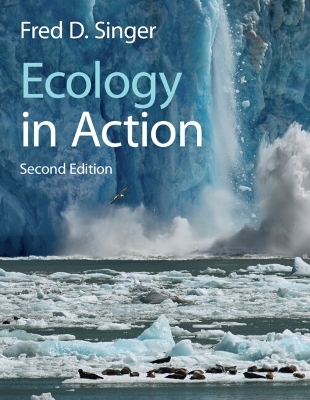
Ecology in Action
Cambridge University Press (Verlag)
978-1-108-92722-2 (ISBN)
Providing students with a solid understanding of core ecological concepts while explaining how ecologists raise and answer real-world questions, this second edition weaves together classic and cutting-edge case studies to bring the subject to life. It is fully updated throughout, including two chapters devoted to climate change ecology, along with extensive coverage of disease ecology, and has been designed specifically to equip students with the tools to analyze and interpret real data. Each chapter emphasizes the linkage between observations, ideas, questions, hypotheses, predictions, results, and conclusions. Additional summary sections describe the development and evolution of research programs in each of ecology's core areas, providing students with essential context. Integrated discussion questions, along with end-of-chapter questions, encourage active learning. These are supported by online resources including tutorials that teach students to use the R programming language for statistical analyses of data presented in the text.
Fred D. Singer is Professor Emeritus of Biology at Radford University, where he has taught courses including general ecology, field ecology, and climate change ecology for 25 years. He was awarded the 2000 Radford Foundation Distinguished Creative Scholar Award in recognition of his work in developing dual research programs into spider behavioral and community ecology as well as approaches to active learning.
Preface; Acknowledgments; Part I. Introduction and the Physical Environment: 1. What is ecology in action?; 2. The physical environment; 3. The carbon cycle and climate change; Part II. Evolutionary and Organismal Ecology: 4. Evolution and adaptation; 5. Physiological and evolutionary ecology of acquiring nutrients and energy; 6. Physiological and evolutionary ecology of temperature and water relations; 7. Behavioral ecology; Online case study 1. Bernd Heinrich: studying adaptation in the field and the laboratory; Part III. Population Ecology: 8. Life history evolution; 9. Population distribution and dispersal movement; 10. Population abundance and growth; 11. Conservation ecology; Online case study 2. Jane Goodall and Anne Pusey: researching the chimpanzees of Gombe; Part IV. Community Ecology: 12. Interspecific competition; 13. Predation and other exploitative interactions; 14. Facilitation; 15. Complex interactions and food webs; 16. Biological diversity and community stability; Online case study 3. Dan Janzen and Winnie Hallwachs: community interactions and tropical restoration through biodiversity conservation; Part V. Ecosystem and Global Ecology: 17. Ecosystem structure and energy flow; 18. Nutrient cycles: global, regional and local; 19. Disturbance and succession; 20. Geographic and landscape ecology; 21. Climate change ecology; Online case study 4. Jane Lubchenco: community, ecosystem and global ecology; Glossary; Credits; References; Index.
| Erscheinungsdatum | 18.07.2024 |
|---|---|
| Zusatzinfo | Worked examples or Exercises |
| Verlagsort | Cambridge |
| Sprache | englisch |
| Maße | 216 x 279 mm |
| Gewicht | 1750 g |
| Themenwelt | Naturwissenschaften ► Biologie ► Ökologie / Naturschutz |
| ISBN-10 | 1-108-92722-X / 110892722X |
| ISBN-13 | 978-1-108-92722-2 / 9781108927222 |
| Zustand | Neuware |
| Haben Sie eine Frage zum Produkt? |
aus dem Bereich


